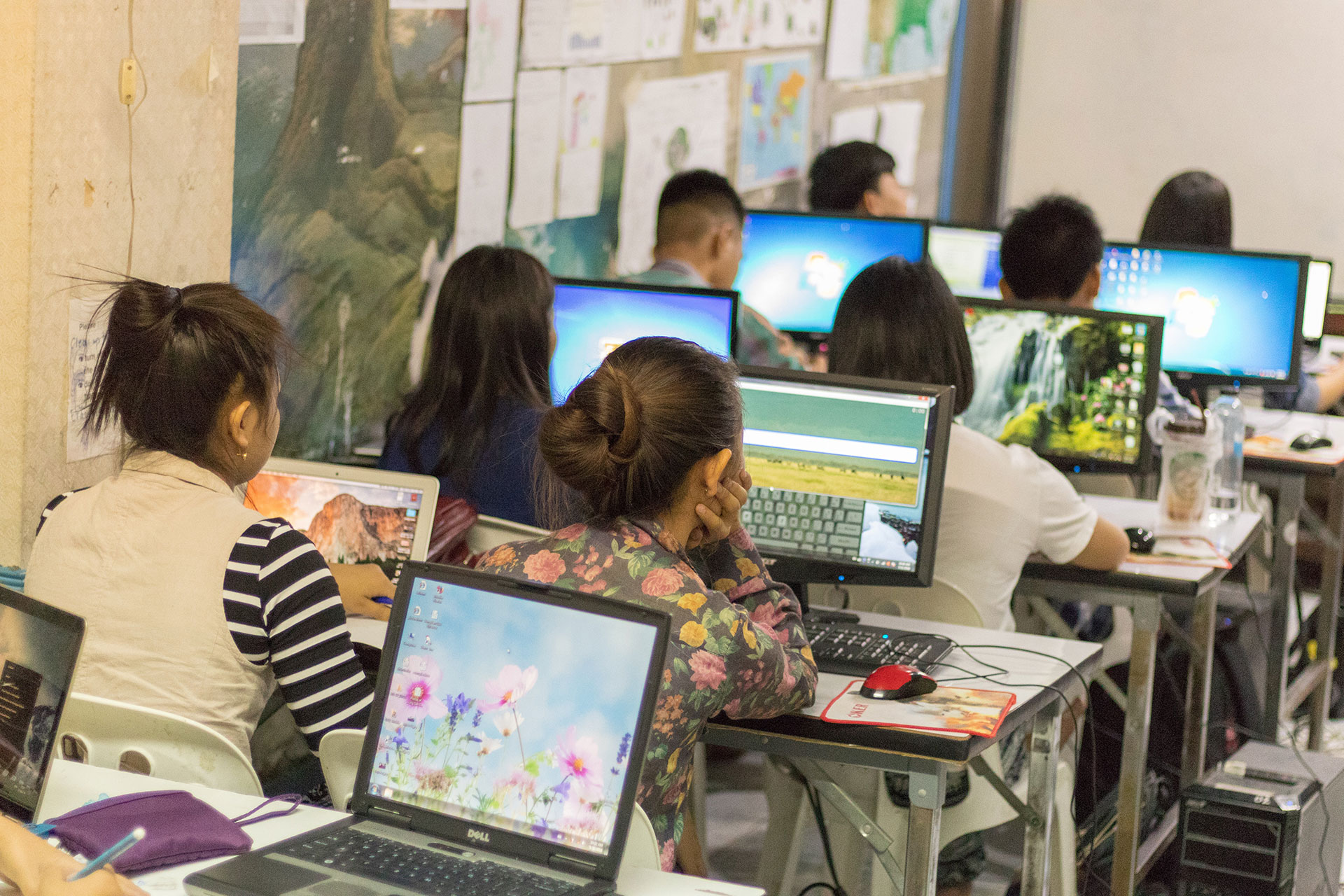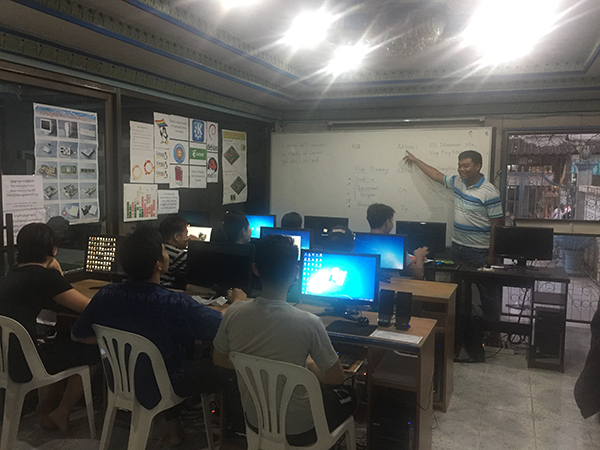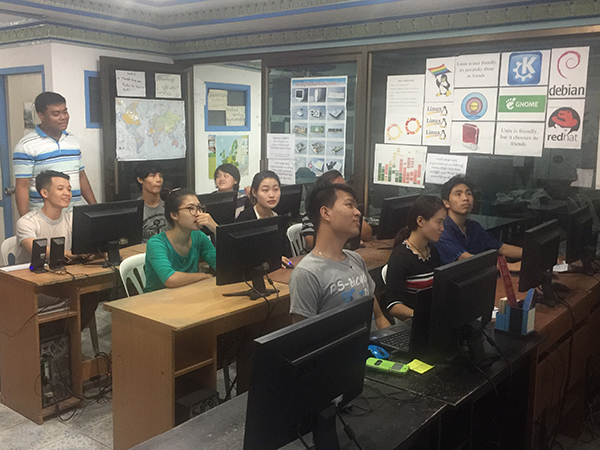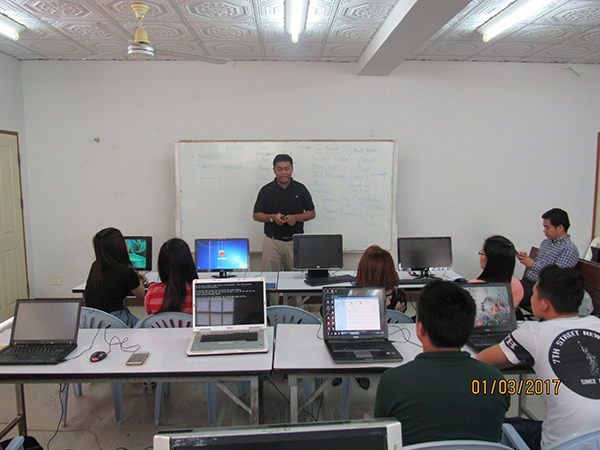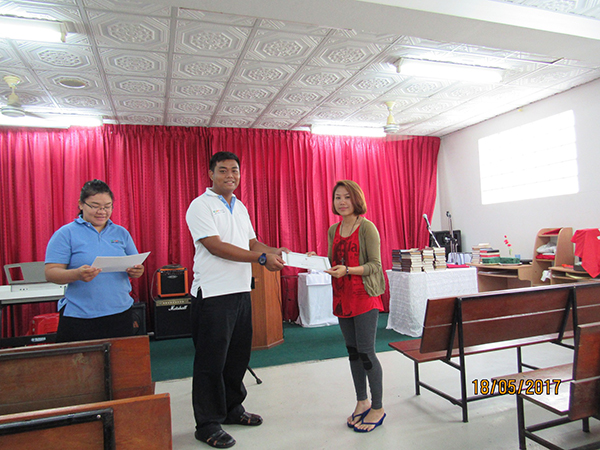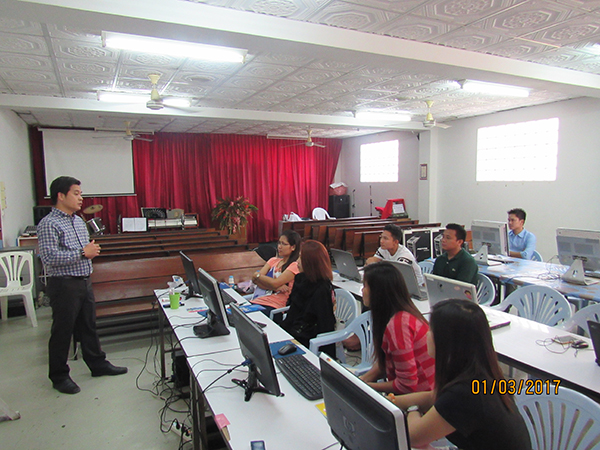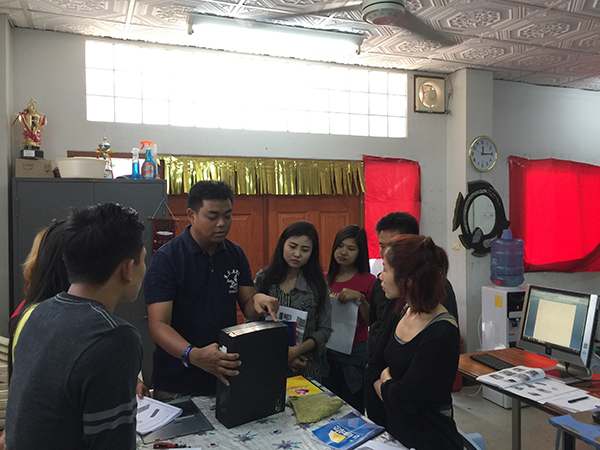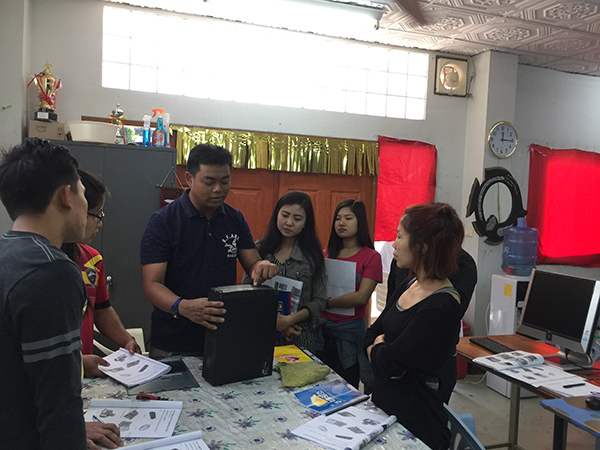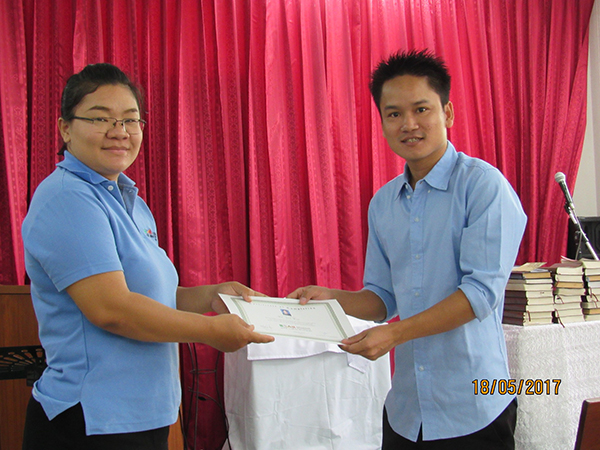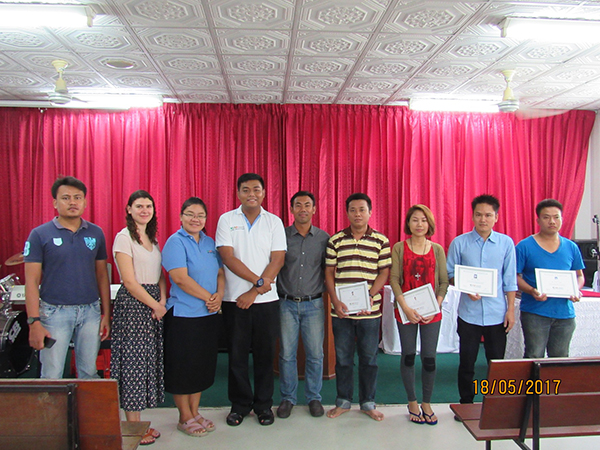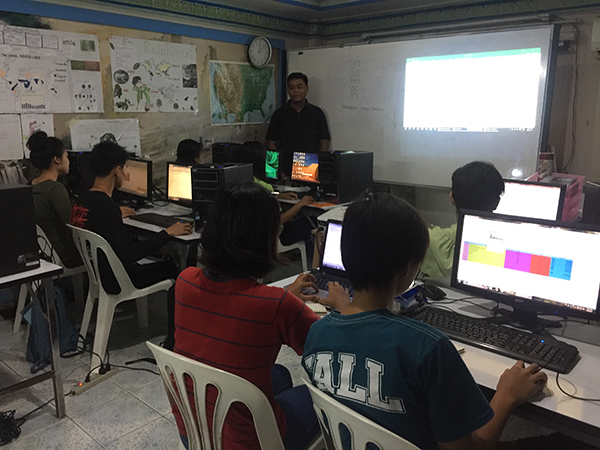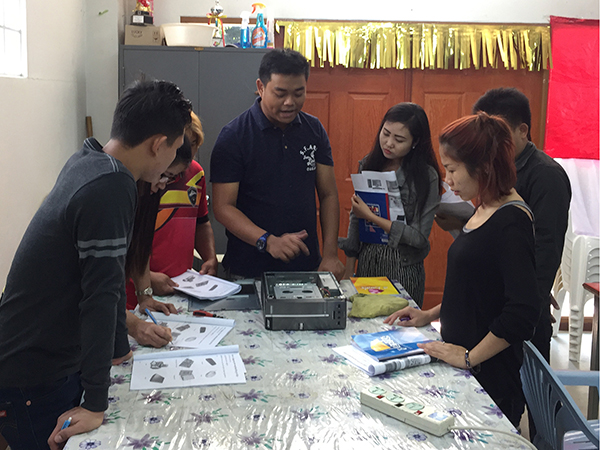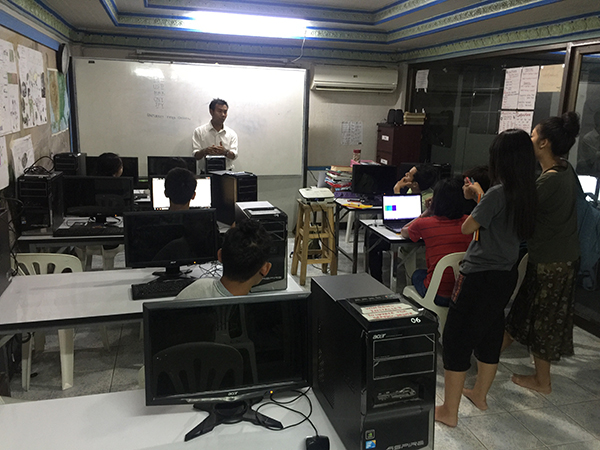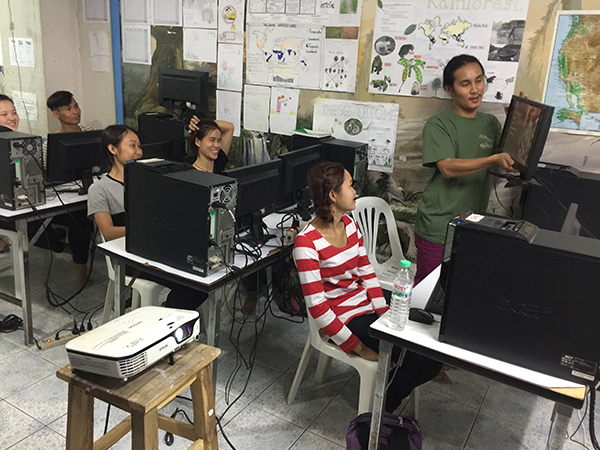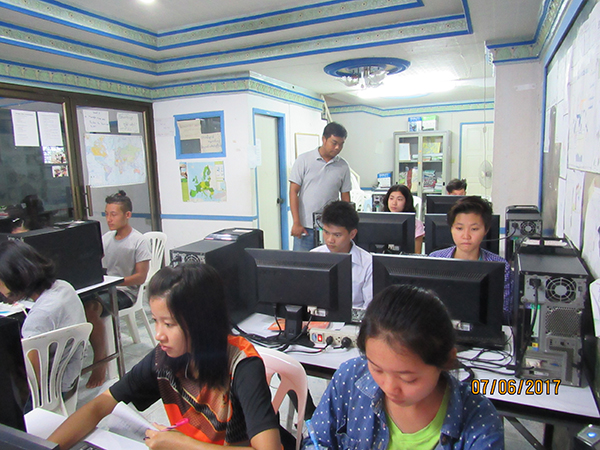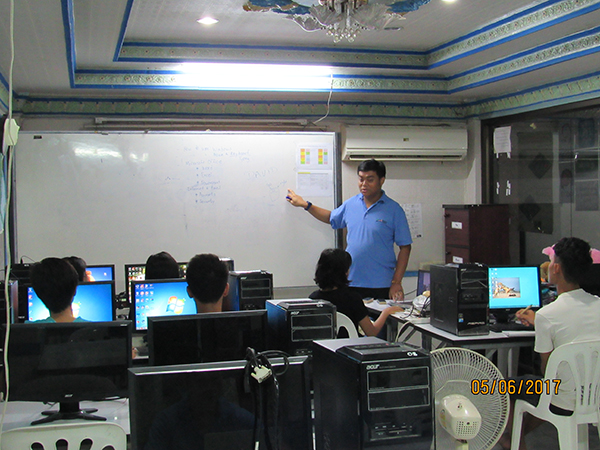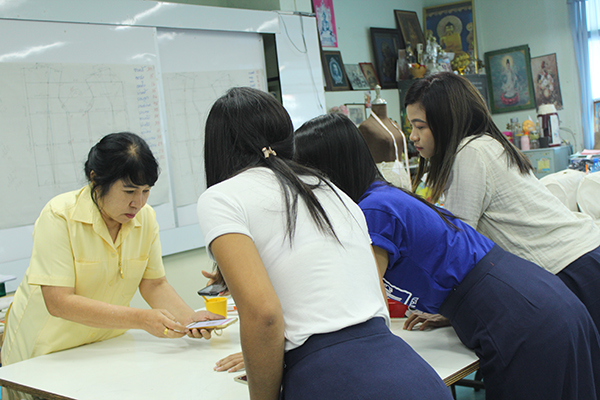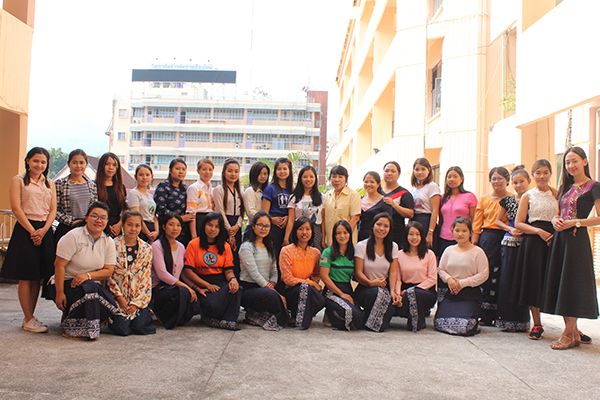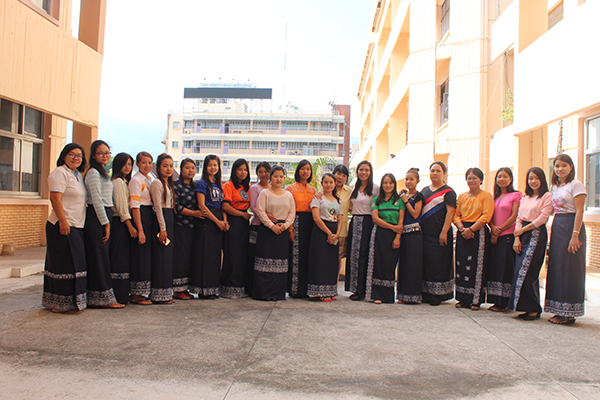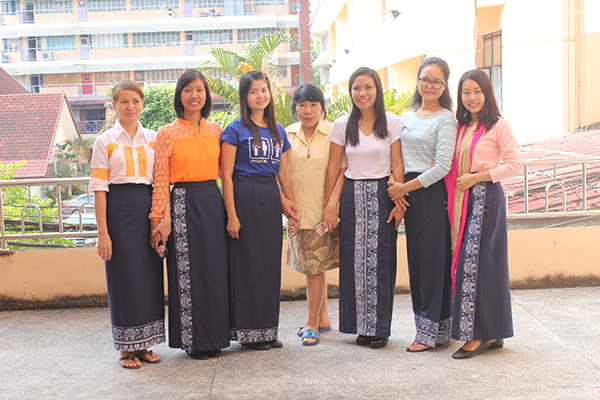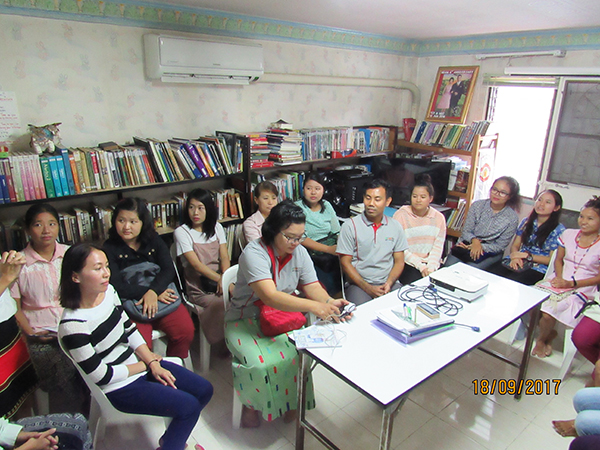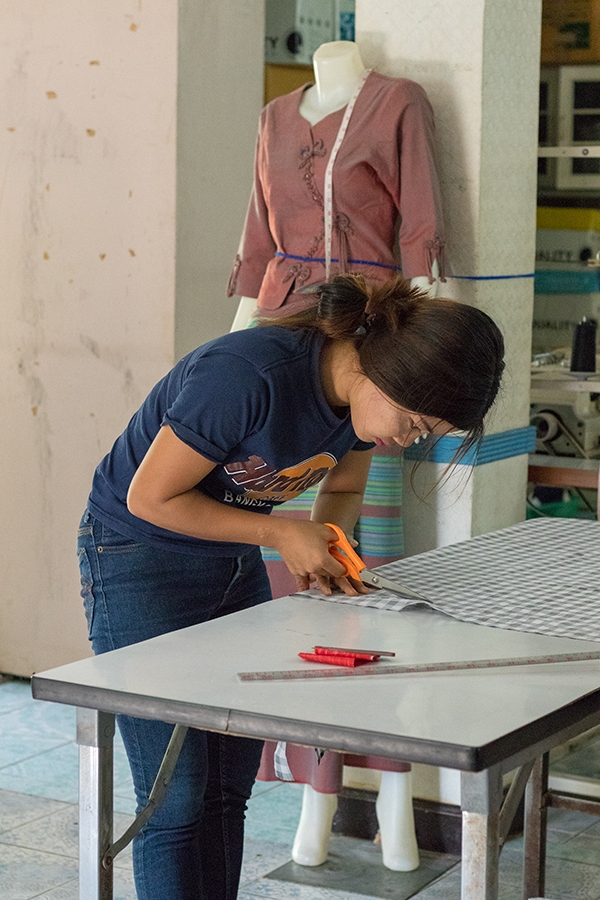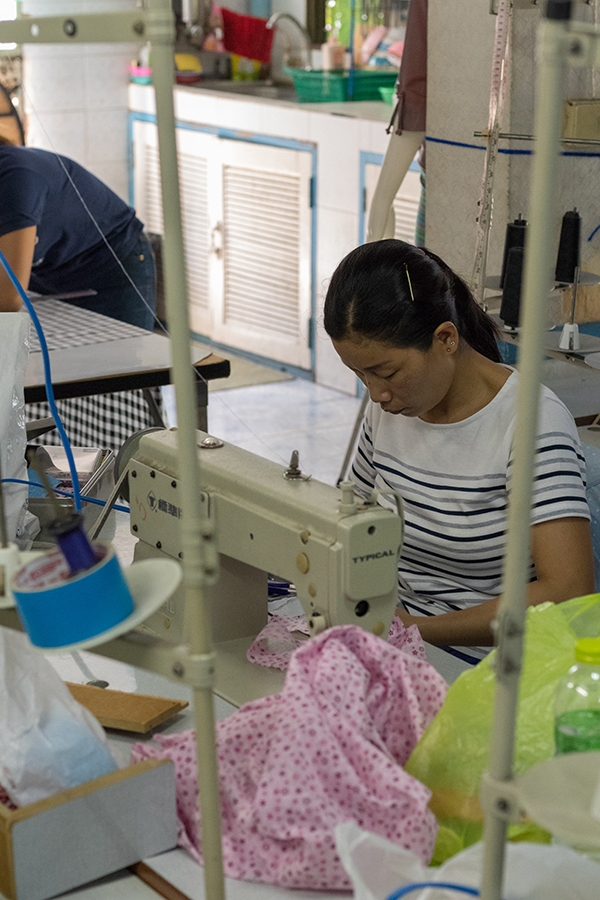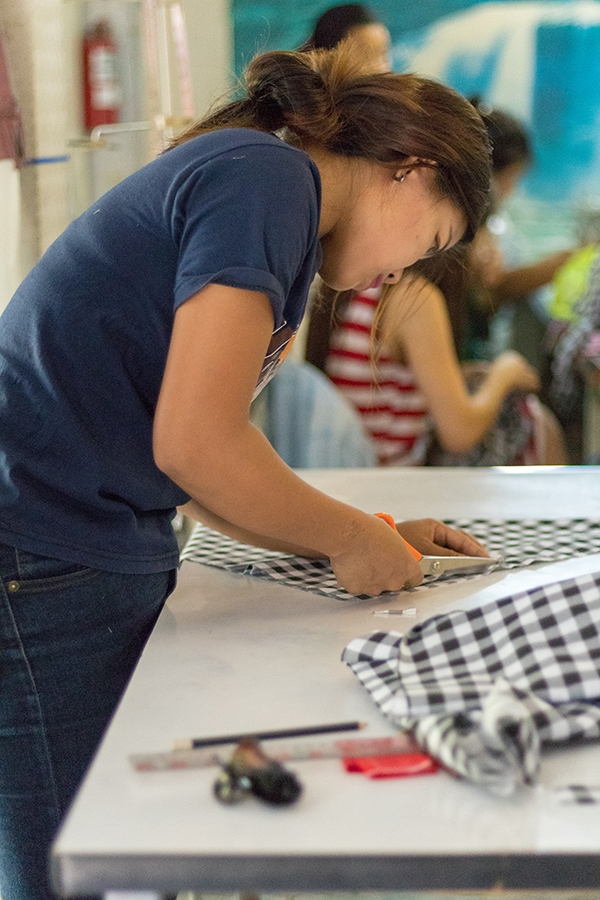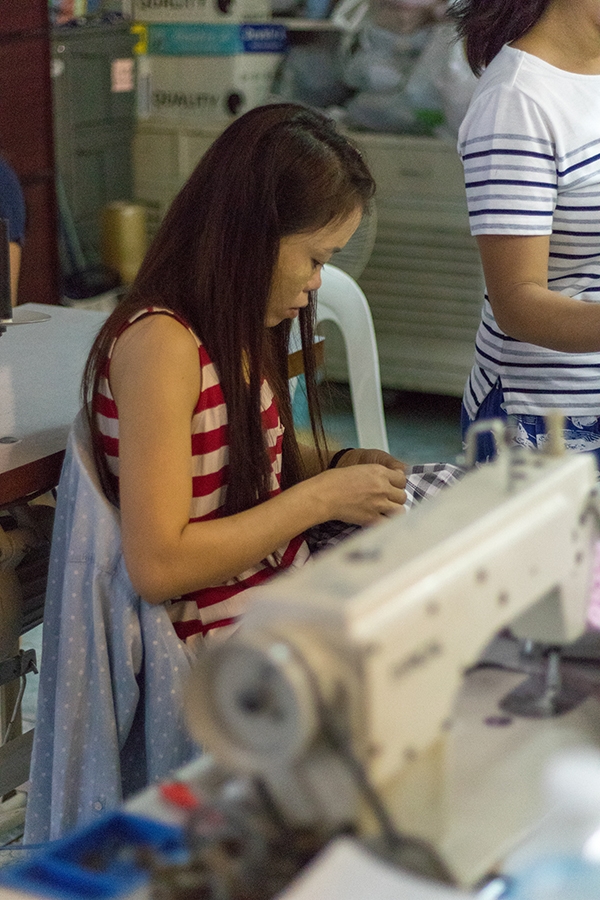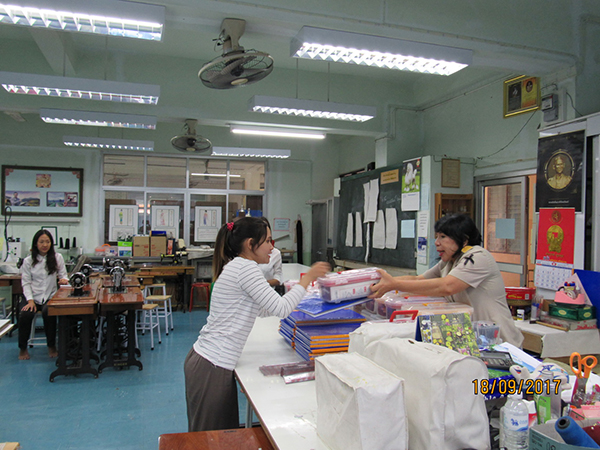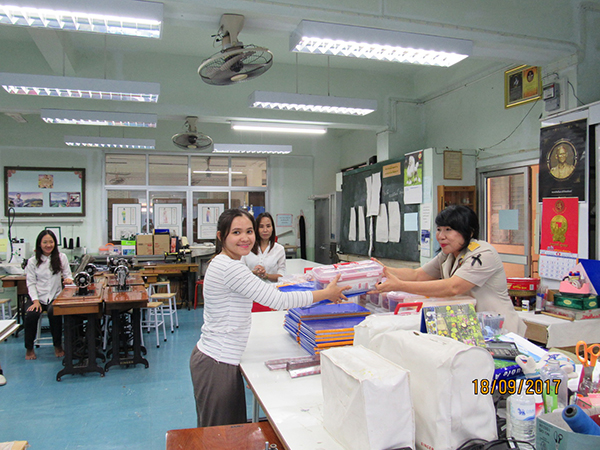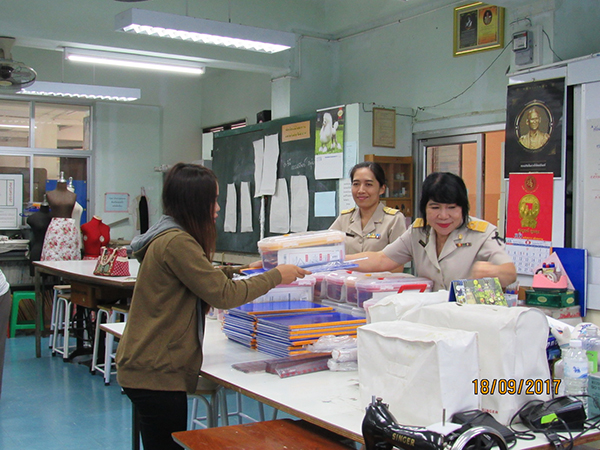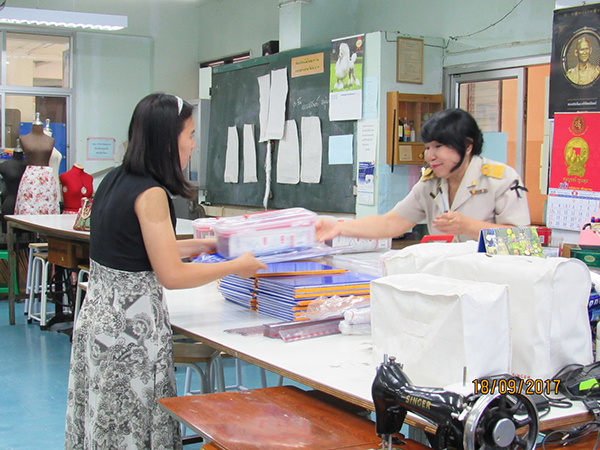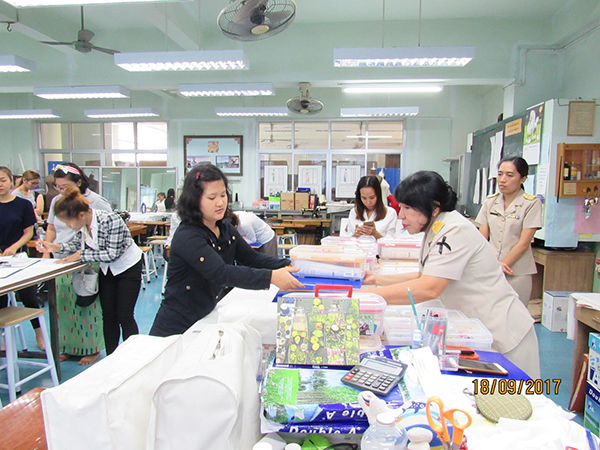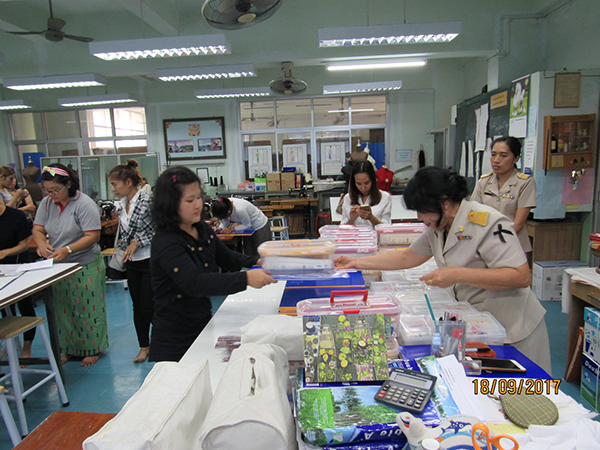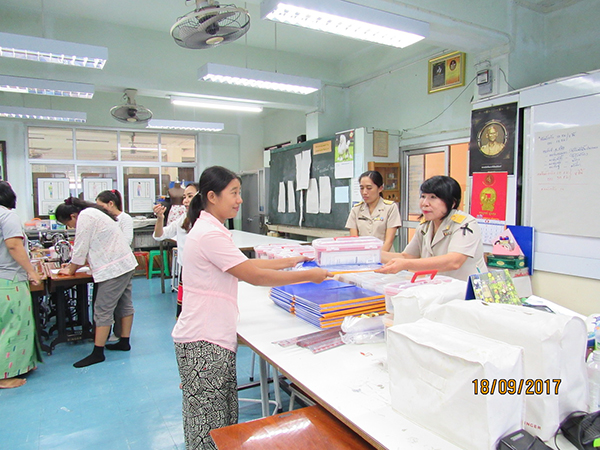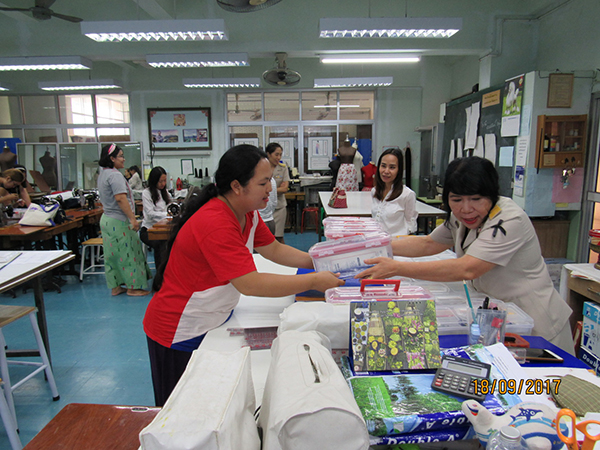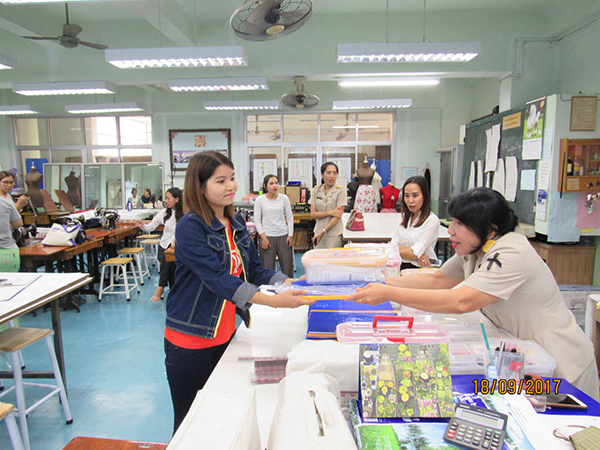Vocational Education Program
Through BEAM’s Vocational Education Program, migrants who aspire to learn occupational skills are provided with vocational trainings including ICT literacy, intensive TOT handicraft training, mentorship and career development for migrant youth, and tailoring and crochet trainings. BEAM Education Foundation and Chiang Mai Polytechnic College signed the Memorandum of Understanding on collaboration to initiate vocational education and short course technical skills on the subject of tailoring and cooking in 2016. Over 1,370 marginalized young people have graduated from BEAM’s Vocational Education Program. The programs increasingly target proportionally more women, as they are usually the most marginalized. They profit from education in technology, but also in craftsmanship to generate income in communities that are in need.
1) Center-Based ICT Literacy Training
The center-based information and communication technology (ICT) training aims at teaching Burmese migrants and BEAM's own higher education students from the Chiang Mai area how to find requirements and the like for scholarships, application and universities. It is an affordable and inclusive ICT skill training for basic education students. After the course the students will be able to handle online studies, online research, formatting of academic papers, online registrations & signing up to accounts, online banking access for their university enrollment, printing, scanning and other administrative tasks they need for their study. All in all they will be ready to face all kinds of technological challenges that arise. BEAM offers a 20 hour long short course that will teach students the basics and will get them on their way. The regular ICT training takes 40 hours of classes, after which the students feel comfortable online in a rapidly changing world
2) Mobile ICT Literacy Training
Next to the center-based training BEAM established an outreach program. For the mobile ICT literacy training teachers go out to places where Burmese migrants are working or that are easily accessible to them. Thus the courses are taught in construction camps, monasteries, temples and churches in and around Chiang Mai. Since 2018 BEAM also goes out to other cities like Lamphun, Measot and Ranong in order to reach local refugee and migrant communities. As there are no affordable ICT courses that existed before, BEAM took the initiative to bring these courses to the marginalized communities.
Like in the center-based program, BEAM offers the short course (20 hours) and the regular course (40 hours) format. The classes are offered in different formats: ICT Trainings by using computers and ICT Trainings by using Mobile phones. This is done to facilitate the resources as well as the needs of the participants, because in today's world technology is not only important for jobs, but also for everyday practices. These can range from shopping or staying in contact with friends and family to protecting one's rights and security.
3) Community Based Household Income Generation Project
Since BEAM was founded in 2010 it has provided underprivileged groups such as refugees and migrants, especially women, with the skills to work and generate income. It has done this by teaching them tailoring and other crafts that do not require expensive tools. For 2019 / 2020 BEAM has now designated resources to bring the success of this program to communities that are still largely lacking the opportunity to find occupation or education. With this goal BEAM goes out to regions like Baan Mai or Fang, located in outer Chiang Mai, to reach local hill tribes.
Through the training in tailoring and other crafts BEAM is helping households and especially women to generate income for the daily life. This empowers marginalized people by teaching them crafts that they can perform after BEAM left. The training takes between 75 and 100 hours, depending on the village's needs and the handmade craft that is being taught. The community based household income generation project not only helps people to earn a living, but also to develop their careers and acquire vocational skills.
4) Mobile Skill Development Program for Marginalized Youth
Opposed to the community-based program this program targets individual migrants in the areas that they live and work in. However, similarly BEAM is teaching different kinds of craftsmanship to marginalized youth groups to empower and help them to support themselves. For BEAM offers different classes such as blouse sewing training, skirt sewing training, fabric bag sewing training, loom knitting hat and muffler training, and crochet making training. Depending on the class it takes between 50 and 100 hours to complete the full training. The mobile skill development classes address the issue of migrant families' low wage struggles, women and underprivileged youth's issues by teaching them skill they can use to sustain themselves.
5) Vocational Skill Short Course Training (Collaboration with Chiang Mai Polytechnic College)
Official recognition and vocational training in Thailand is mostly limited to Thai nationals and not accessible for migrants and refugees. In order to gain better access to the labor market and official vocational training BEAM, in cooperation with the Chiang Mai Polytechnic College, has created a program for migrant workers. After surveying the Burmese community in and around Chiang Mai BEAM is offering bakery training, thai cuisine training, hair dressing training, and tailoring training. At the end of each training the trainee will receive an official certificate that meets the ASEAN standardization. It will also be recognized by the Thai Ministry of Labor in the future.
The training takes between 150 and 225 hours. It is taught on all weekdays for three hours each and, thus, allows particpants to take part in other courses or work on the side. This means that the training takes about 2 and a half months. BEAM offers the vocational skill short course training three times a year. Through this program, marginalized groups have the change to graduate with a recognized certificate that is available and affordable to them. Thanks to the establishment of this program in 2016 graduating students are able to run small businesses, social enterprise businesses, and also provide more training in different provinces of Myanmar.
6) ICT4A Mobile App Project
With our mobile application BEAM is reaching people that would not receive education through traditional institutions. There are almost 200,000 migrant worker in Chiang Mai and 83% of them are from Myanmar. Due to the weakness in the Thai social security system in regards to foreign workers the migrant communities are often marginalized and lacking any protection. This in combination with natural disasters that cause the highest destruction in underprivileged neighborhoods leads to poverty and insecurity, where even basic needs are not met.
With its many years of experience in training and education programs BEAM developed an application based on Android that helps migrants. The app focuses on ICT literacy. It equips users with the necessary skills to navigate new technologies and the internet. It empowers them to research and stand up for their rights, find education and jobs. The application is accessible offline so no mobile data or wifi is required to use it. This is especially important for migrant and refugee communities close to the border, where internet is not always accessible.


